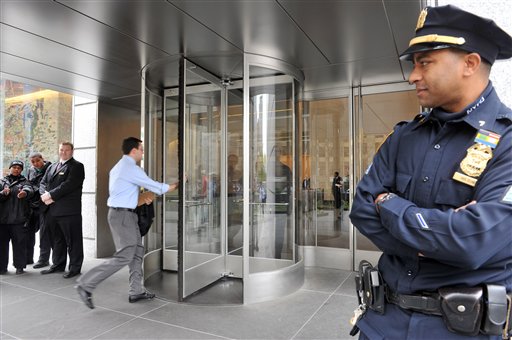The SEC's fraud suit against Goldman Sachs could trigger additional probes of collateralized debt obligations and lead to stricter regulation of the financial services industry
The U.S. Securities and Exchange Commission’s fraud suit against Goldman Sachs Group Inc. may trigger additional probes of collateralized debt obligations and lead to stricter regulation, analysts and academics said.
The SEC sued Goldman Sachs on April 16, alleging that the bank created and sold CDOs linked to subprime mortgages without disclosing to buyers that hedge fund Paulson & Co. helped pick the underlying securities and bet against the vehicle. Investors including Royal Bank of Scotland Group Plc and Germany’s IKB Deutsche Industriebank AG lost about $1 billion from the trade. Goldman Sachs denies wrongdoing.
“This is probably just the tip of the iceberg,” said Chizu Nakajima, director of the Centre for Financial Regulation and Crime at Cass Business School in London. “As far as other financial institutions are concerned, they are obviously very worried. If the SEC’s action is actually successful, it could well open up the gates to other litigation worldwide.”
British Prime Minister Gordon Brown yesterday called for the Financial Services Authority to start an inquiry. Regulators may probe other CDOs that lost money for investors and could probe other investment banks involved in the business, Raul Sinha, a London-based analyst at Nomura Holdings Inc., wrote in a report published today. The suit may also strengthen political pressure for more regulation of derivatives and similar complex financial structures, threatening earnings, analysts said.
The Goldman Sachs lawsuit shook banks worldwide, prompting a 0.8 percent decline in the MSCI World Index, as Mitsubishi UFJ Financial Group Inc. in Tokyo and UBS, Switzerland’s biggest bank, each slid 3.1 percent. Deutsche Bank AG lost 1.7 percent in Frankfurt.
Uncertainty surrounding the outcome of the Goldman suit may hurt investment banks involved in structuring CDOs such as UBS AG, said Matt Spick, a London-based analyst at Deutsche Bank. More stringent regulation of derivatives in the U.S. may hurt banks such as London-based Barclays Plc and Deutsche Bank, Nomura’s Sinha said.
“The manner in which this case has been brought against Goldman Sachs reinforces the current negative regulatory and political environment towards pure investment banking activities,” Sinha wrote.
As many as 20 banks arranged about $418 billion of CDOs in 2007, when the U.S. housing market began to collapse, according to analysts at UBS AG. Citigroup Inc. was the top arranger, followed by Merrill Lynch & Co. Inc. and Deutsche Bank, the analysts said, citing Thomson Reuters and UBS data.
The SEC is investigating transactions by Deutsche Bank, UBS and the former Merrill Lynch in the mortgage securities market, the New York Post reported today, without saying where it obtained the information.
Armin Niedermeier, a spokesman for Frankfurt-based Deutsche Bann, and Eveline Mueller-Eichenberger, a spokeswoman for Zurich-based UBS, declined to comment on the report. Merrill spokesman Bill Halldin declined to comment.
The Goldman suit may prompt further litigation, possible loss of business from governments and public pension funds, an increase in momentum for more stringent regulatory reform and more “public ire” against the financial industry, UBS analysts Glenn Schorr and Keith Murray said in a note to clients. The published CDO league table may not be “overly relevant,” according to the analysts.
“We don’t expect to see a huge wave of complaints as there were likely very few large clients involved in orchestrating these deals,” they wrote. --Bloomberg







